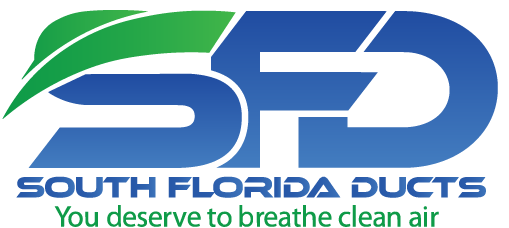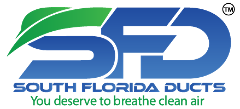
Fortunately, by leveraging the power of HVAC (Heating, Ventilation, and Air Conditioning) systems, we can significantly improve the quality of the air we breathe. In this comprehensive guide, we will explore a diverse range of HVAC-based strategies and technologies that can transform the air quality in your living or working environment, empowering you to breathe easier and live healthier.
Understanding the Significance of Indoor Air Quality
Indoor air quality encompasses the physical, chemical, and biological characteristics of the air within a building or structure. Poor IAQ can lead to a myriad of health issues, from respiratory problems and allergies to long-term respiratory disorders. Factors such as dust, pollen, mold, volatile organic compounds (VOCs), and even carbon monoxide can all contribute to diminished air quality and pose risks to occupant health.
By addressing IAQ concerns through HVAC-centric solutions, we can create healthier, more comfortable indoor environments that promote overall well-being. This not only benefits individual health but also enhances productivity, cognitive function, and overall quality of life for building occupants.
Enhancing Ventilation for Improved Air Circulation
One of the most effective ways to improve indoor air quality is to increase ventilation and air circulation within a building. Proper ventilation helps to dilute and remove indoor pollutants, replacing stale, contaminated air with fresh, outdoor air.
Optimizing HVAC System Settings
Adjusting the settings on your HVAC system can significantly impact air circulation. By setting your system’s fan to the “on” position, you can ensure continuous air movement, even when the heating or cooling functions are not actively running. This constant air circulation allows your HVAC’s filtration system to capture more airborne particles, improving overall air quality.
Incorporating Mechanical Ventilation
In addition to adjusting HVAC settings, you can also consider installing mechanical ventilation systems, such as energy-efficient heat recovery ventilators (HRVs) or energy recovery ventilators (ERVs). These systems work by continuously exchanging stale indoor air with fresh outdoor air, while also recovering the energy from the outgoing air to pre-condition the incoming air. This not only enhances ventilation but also improves energy efficiency.
Leveraging Exhaust Fans
Strategically placed exhaust fans in high-moisture areas like bathrooms and kitchens can effectively remove pollutants and excess humidity, further improving indoor air quality. These fans help to expel contaminated air and draw in fresh outdoor air, creating a healthier indoor environment.
Optimizing Air Filtration for Cleaner Indoor Air
The quality of your HVAC system’s air filters plays a crucial role in determining the cleanliness of the air circulating throughout your indoor spaces. Upgrading to higher-efficiency filters can significantly enhance the removal of airborne particles, allergens, and other pollutants.
Choosing the Right Filter Type
Standard one-inch air filters are often insufficient for effectively capturing smaller particles, such as pet dander, pollen, and mold spores. Consider upgrading to four-inch media filters or high-efficiency particulate air (HEPA) filters, which can trap even the tiniest of airborne contaminants.
Implementing Regular Filter Maintenance
Regularly inspecting and replacing your HVAC system’s air filters is essential for maintaining optimal air quality. Clogged or dirty filters can restrict airflow, forcing your system to work harder and potentially allowing more pollutants to circulate. Establish a routine filter replacement schedule, typically every one to three months, to ensure your HVAC system is operating at peak efficiency.
Integrating Air Purification Technologies
While air filtration plays a crucial role, supplementing your HVAC system with dedicated air purification technologies can further enhance indoor air quality. These advanced solutions target specific pollutants and provide an additional layer of protection for your indoor environment.
Whole-House Air Purifiers
Whole-house air purifiers are designed to integrate seamlessly with your HVAC system, effectively cleaning the air circulated throughout your entire living or working space. These systems often utilize HEPA filtration, ultraviolet (UV) light disinfection, and advanced carbon filtration to remove a wide range of airborne contaminants, including allergens, bacteria, and volatile organic compounds.
Portable Air Cleaners
For targeted air purification in specific rooms or areas, portable air cleaners can be a valuable addition. These standalone devices leverage high-efficiency filtration and advanced technologies to capture and neutralize pollutants in the immediate vicinity, offering a convenient and flexible solution for improving localized air quality.
Cleaning Ducts is Crucial for Maintaining Good Indoor Air Quality
Removal of Dust and Debris
Cleaning vents removes accumulated dust, debris, and allergens that can circulate in the air when the HVAC system is running.
Prevention of Mold Growth
Regular cleaning prevents the buildup of moisture and mold in the vents, which can negatively affect indoor air quality.
Improved Airflow
Cleaning vents ensures proper airflow, allowing the HVAC system to function efficiently and distribute clean air throughout the space.
Reduction of Allergens
By removing dust and allergens from the vents, cleaning helps reduce the presence of allergens in the indoor air, benefiting those with allergies or respiratory issues.
Odor Control
Cleaning vents can help eliminate musty odors caused by accumulated dust and mold, contributing to a fresher indoor environment.
Clean vents contribute to better indoor air quality by removing allergens, preventing mold growth, improving airflow, and controlling odors, ultimately creating a healthier and more comfortable indoor environment.
Our Air Duct Cleaning Services
Our Air Duct Cleaning process is designed to remove the maximum amount of dirt and dust possible. We achieve an extremely high level of cleaning without damaging your ducts or contaminating your home.
> Learn More
Maintaining Optimal Humidity Levels
Humidity levels play a crucial role in indoor air quality, as both excessively dry and overly humid environments can contribute to a range of health and comfort issues.
Humidifiers for Dry Air
During colder months, when indoor air tends to be drier, the use of humidifiers can help restore moisture to the air, alleviating symptoms like dry skin, static electricity, and respiratory irritation. HVAC-integrated whole-house humidifiers can regulate humidity levels throughout your living or working space, creating a more comfortable and healthier environment.
Dehumidifiers for Excess Moisture
Conversely, in humid climates or during warmer seasons, dehumidifiers can be instrumental in controlling excess moisture in the air. By removing excess humidity, these devices can prevent the growth of mold, mildew, and dust mites, which thrive in damp conditions and can exacerbate respiratory problems.
Monitoring and Addressing Indoor Air Quality
Effective management of indoor air quality requires a proactive approach, which often involves monitoring and addressing any emerging issues in a timely manner.
IAQ Monitoring Devices
Recent advancements in technology have led to the development of intelligent IAQ monitoring devices. These smart appliances can track a range of indoor pollutants, from carbon monoxide to volatile organic compounds, providing real-time data and insights to help you identify and address air quality concerns.
Professional IAQ Assessments
For a comprehensive evaluation of your indoor air quality, consider enlisting the expertise of HVAC professionals who specialize in IAQ assessments. These experts can conduct detailed testing, identify the root causes of any air quality problems, and recommend tailored solutions to improve the air you breathe.
Maintaining HVAC System Efficiency
Proper maintenance and upkeep of your HVAC system is crucial for ensuring its optimal performance and preserving indoor air quality over the long term.
Regular HVAC Servicing
Scheduling regular maintenance appointments with qualified HVAC technicians can help ensure your system is operating at peak efficiency. These professionals can clean, inspect, and tune up your equipment, addressing any issues that may compromise air quality, such as clogged ductwork or malfunctioning components.
Proactive Preventive Maintenance
Adopting a proactive preventive maintenance approach can help you stay ahead of potential problems. This may include tasks like changing air filters, cleaning coils and blower components, and addressing any minor issues before they escalate, all of which contribute to improved indoor air quality.
Addressing Specific IAQ Concerns
In some cases, your indoor air quality challenges may require targeted solutions to address specific pollutants or environmental factors.
Mitigating Mold and Moisture Issues
Excess moisture and humidity can lead to the growth of mold, which can have severe consequences for indoor air quality. HVAC-based solutions, such as dehumidifiers and proper ventilation, can help control moisture levels and prevent mold proliferation.
Reducing Volatile Organic Compounds (VOCs)
Many household products, building materials, and furnishings can off-gas volatile organic compounds (VOCs), which can compromise indoor air quality. Upgrading to low-VOC or no-VOC alternatives, along with proper ventilation, can help mitigate this issue.
Eliminating Carbon Monoxide Risks
The presence of carbon monoxide, an odorless and potentially deadly gas, requires immediate attention. Installing carbon monoxide detectors and ensuring proper maintenance of fuel-burning appliances can help safeguard against this invisible threat.
Improving IAQ in Multifamily Buildings
Addressing indoor air quality challenges in multifamily buildings, such as apartments and condominiums, can present unique challenges due to the shared nature of the indoor environment.
Enhancing Ventilation in Common Areas
Improving ventilation in shared spaces, such as lobbies, hallways, and stairwells, can help dilute and remove pollutants that may originate from individual units. This can involve upgrading HVAC systems to incorporate more efficient outdoor air intake and circulation.
Sealing Air Leaks Between Units
Air can easily travel from one apartment to another through cracks, gaps, and other openings. Implementing comprehensive air sealing measures can help prevent the migration of odors, smoke, and other contaminants between units, enhancing overall indoor air quality.
Educating Residents on IAQ Best Practices
Engaging with residents and providing educational resources on indoor air quality best practices can empower them to take an active role in maintaining a healthy indoor environment. This may include guidance on proper cleaning, ventilation, and the use of low-emission products within their individual units.
Partnering with HVAC Professionals for Optimal IAQ
While there are many steps homeowners and building managers can take to improve indoor air quality, partnering with experienced HVAC professionals can be invaluable in achieving the best results.
Leveraging HVAC Expertise
HVAC technicians possess the knowledge and skills to accurately assess your indoor air quality challenges, recommend the most effective solutions, and ensure the proper installation and integration of IAQ-enhancing technologies within your HVAC system.
Ongoing Maintenance and Support
Maintaining optimal indoor air quality is an ongoing process that requires vigilance and regular attention. HVAC professionals can provide comprehensive maintenance services, including filter changes, system tune-ups, and prompt response to any emerging issues, ensuring your IAQ remains consistently high.
Improving indoor air quality is not only crucial for our health and well-being but also plays a significant role in enhancing our overall quality of life. By leveraging the power of HVAC systems and implementing a range of strategies and technologies, we can create healthier, more comfortable indoor environments that allow us to breathe easier and thrive.
Contact Us (954-909-4281) For a Free Estimate
Book an Appointment
—
 About South Florida Ducts
About South Florida Ducts
Air Duct Cleaning
We remove the maximum amount of the dirt and dust possible.
> Learn More
Air Duct Restoration
Hospital grade duct restoration when ducts need more than a vacuuming.
> Learn More
New Air Ducts Installed
New air ducts vastly improve your AC’s efficiency and overall air quality.
> Learn More
A/C Services
From routine maintenance visits to custom installations, SFD does it all and does it well.
> Learn More

 About South Florida Ducts
About South Florida Ducts